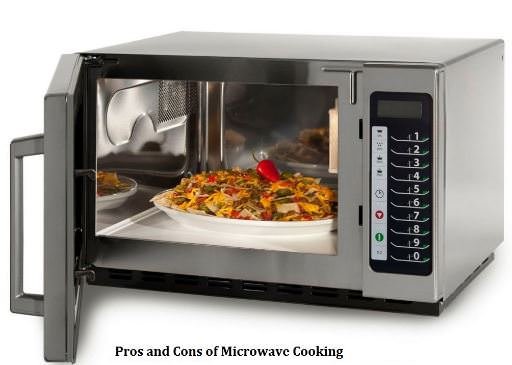Does Microwave Destroy Vitamins in Food?
The microwave is a marvelous invention. It’s a quick, convenient way to heat up plenty of foods, from frozen dinners to leftover soup. But that makes a lot of people question how good it is for you.

Do microwaves change the nutritional value of food? The short answer is; yes, they do. But so does any other method of cooking. And actually, cooking food in the microwave gets rid of less of some nutrients than other methods like baking or boiling. When you preheat an oven, coils of wires heat up and then transfer that energy to air molecules so they’re moving around more. That motion is heat energy. And when you stick a frozen pizza in, the air molecules bump into the food and transfer heat from the outside in. Microwaves, on the other hand, cook food using electromagnetic radiation. The waves are changing electric and magnetic fields. So they especially affect molecules like water that are polar, with different charges on different parts. When you’re microwaving your leftovers, the polar molecules keep flipping around to line up with the changing fields, and heat up. The microwaves go through your whole burrito, so the center reheats at basically the same time as the outside. But the air doesn’t really change during the microwaving process, because those molecules are mostly non polar. When people are worried about the nutrients in their food, they could mean all kinds of things. There are carbohydrates and proteins, or stuff like vitamins, compounds that we have to eat, because our bodies can’t make them independently. All of those chemicals change when they’re micro waved. But they don’t change much differently than they would with other cooking methods. For example, heat can change proteins in a way that makes them easier to digest. There are some differences, though. Like, microwaves can heat up things much faster than other appliances. That matters for the vitamins in your food, which break down more the longer they’re exposed to heat. Vitamin C, for one, is particularly sensitive to heat. So a faster cooking time means that more of it sticks around. Some vitamins also tend to dissolve in water, so if you’re boiling your veggies, those vitamins get pulled into the liquid. But microwaves avoid that problem too. A group of researchers in China took a closer look at cooking broccoli in different ways, and measured its vitamin C content, along with some other nutrients. They reported the results in 2009.Boiling the broccoli led to the loss of 33 percent of its vitamin C. Stir-frying took away 24 percent, while microwaving only led to a loss of 16 percent. Steaming was actually the most efficient method, and hardly any of the vitamin C went away. But the microwave was in second place and not too shabby. So arguably the most convenient cooking tool in your kitchen is also one of the best ways to keep at least some of the vitamins locked in your food. And it makes popcorn, too!

To the question in your title, my Magic 8-Ball says:
Hi! I'm a bot, and this answer was posted automatically. Check this post out for more information.
Nice post @junaidpasha,Thanks for providing these valuable informations
Nd i'm glad that you read it.